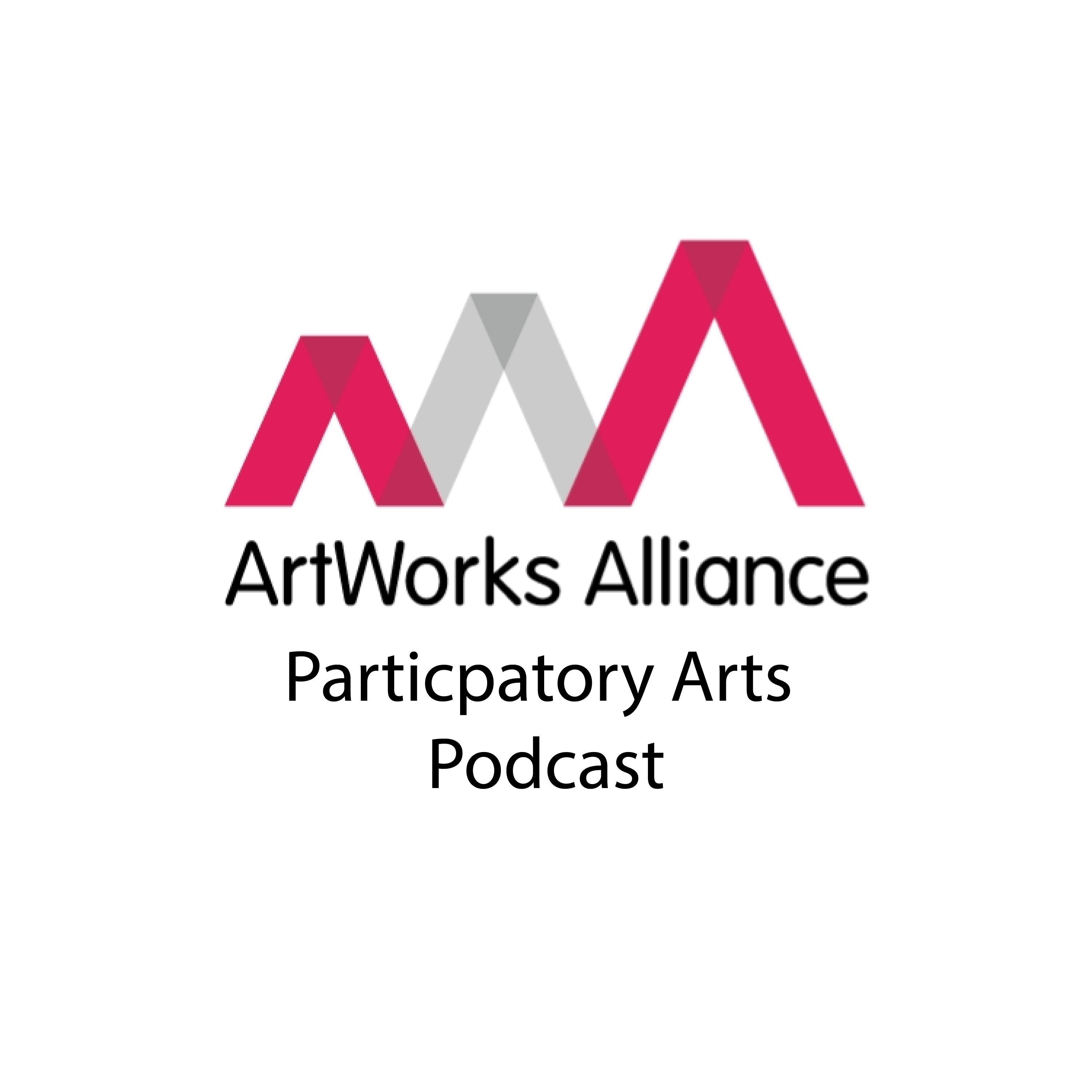ArtWorks Alliance Podcast – Trauma Informed Community Arts Practice
Description
Trauma-informed practice is crucial for participatory arts, as it ensures that art projects are safe, inclusive, and supportive spaces for all participants, especially those who have experienced trauma. It aligns with the broader goals of participatory arts to empower communities, promote cultural democracy, and facilitate personal and social transformation through creative expression. The insights shared by the guests highlight the importance of sensitivity, ethical considerations, and ongoing professional development in achieving these aims.
In this episode of the ArtWorks Alliance Podcast, Rob Watson talks with Catherine Cartwright, Katie Smith, and Theresa Easton, who are all experienced in community arts practice. The central topic of discussion is trauma-informed community arts practice.
Catherine Cartwright has recently submitted a PhD thesis on trauma-informed community arts practice and has extensive experience as a community artist working with women affected by gender-based violence. Katie Smith is a retired social practice artist and trained psychotherapist, with experience working in challenging settings and integrating therapy with social arts practice. Theresa Easton is a community artist and academic, with experience in working on projects during austerity cuts and focusing on cultural democracy through arts.
The podcast begins with an exploration of what trauma is and what being trauma-informed means. The term “trauma-informed” originates from public health and involves understanding trauma’s impact on individuals’ ability to self-regulate and engage in social interactions. Trauma is discussed not only as individual incidents but also as structural and cultural phenomena, such as poverty, racism, and misogyny, which create chronic stress and impact well-being.
The guests share their experiences working with different communities, highlighting the importance of understanding trauma to avoid harm and foster healing. For example, Catherine talks about her work with women affected by violence, while Katie discusses her transition to psychotherapy to better support her practice. They emphasise the necessity of self-awareness and professional support for practitioners to handle the emotional demands of trauma-informed work.
The discussion includes the challenges of working within funding constraints and the need for time and reflection in trauma-informed practices. The guests highlight the tension between funders’ expectations for measurable outcomes and the nuanced, often intangible, successes in community arts projects. Also discussed are the ethical implications of ensuring that practitioners are adequately trained to handle trauma without re-traumatising participants are stressed.
Despite the challenges, the guests express the joy they find in their work, particularly when they see participants form lasting connections and communities through their engagement in the arts. They note that true success often lies in small, significant moments, such as participants returning to sessions or forming supportive relationships, which indicate healing and empowerment.
The podcast concludes with a discussion on how to expand trauma-informed practices within the arts, advocating for broader recognition of the value of these approaches and the need for professional support and training for artists.
Catherine provides a video presenting a summary and key points from her research. The video discusses the importance of feeling connected and cared for as central to recovering from trauma. It emphasises the roles that organisations and arti...
More Episodes
Published 08/05/24
Welcome to the latest episode of the ArtWorks Alliance Podcast, hosted by Rob Watson. In this conversation, Rob is joined by Anita Holford and Sarah Longfield, two professionals with extensive experience in participatory and community arts.
Anita Holford is a freelance communications...
Published 06/27/24
In this episode of the ArtWorks Alliance podcast, host Adrian Sinclair welcomes three visionary members of the Resolve Collective—Melissa Haniff, Akil Scafe-Smith, and Seth Scafe-Smith—for a compelling discussion on the theme of “crossing boundaries.” This conversation delves into the heart of...
Published 06/24/24


